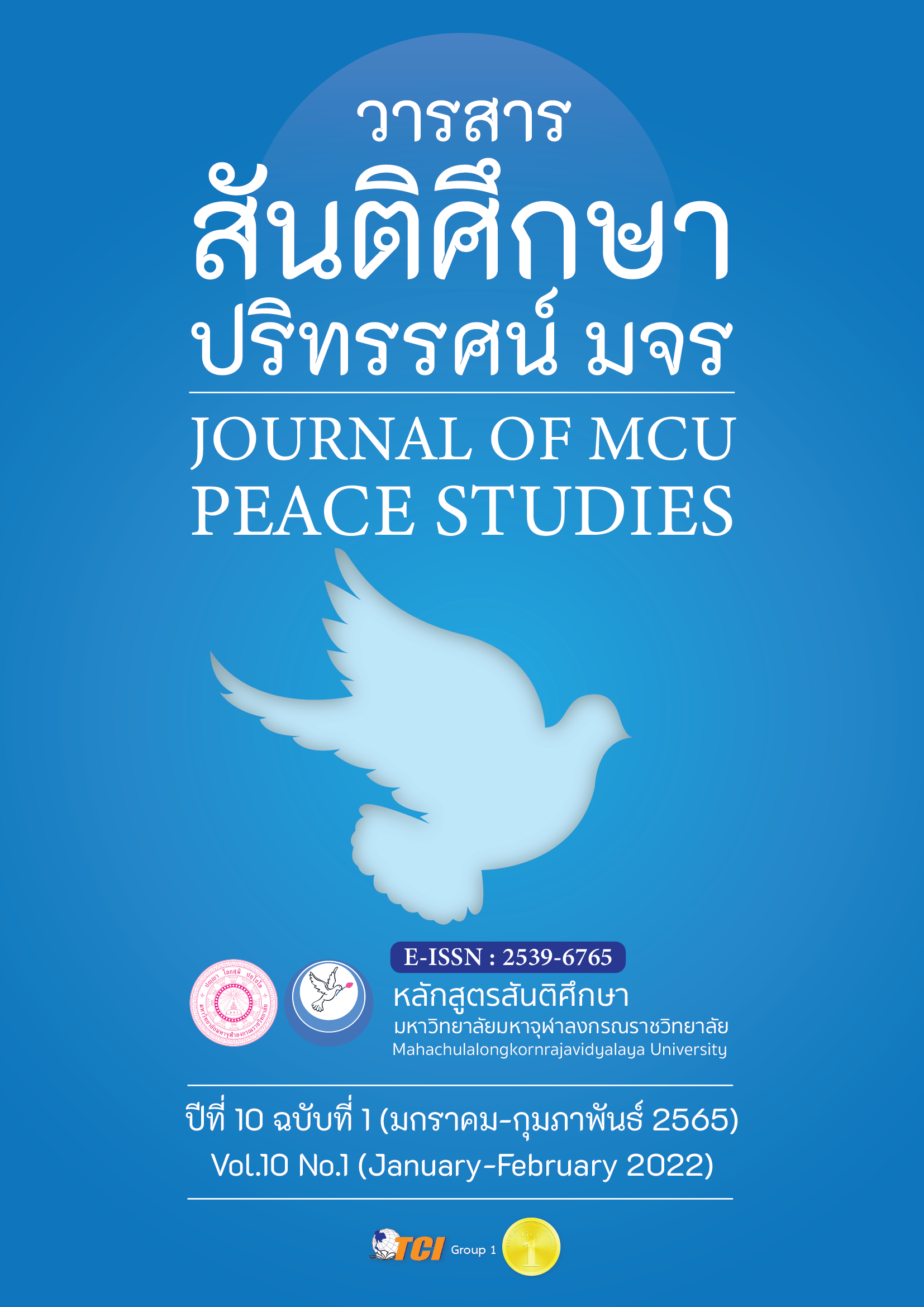A Corpus-Based Study: Authenticity Analysis of Technical Vocabulary from an In-House Textbook and Documents Used in Import and Export Procedures
Main Article Content
บทคัดย่อ
Textbooks are fundamental elements in teaching-learning encounters and therefore should provide real language input to students in order to enhance the effectiveness of their language learning. Through the use of corpus-based analysis, more authentic, content-rich and up-to-date textbooks can be produced that will provide further opportunities for students to experience input from real life rather than language items that have been artificially created. The main purpose of this study was to compile a small sized Textbook Corpus and a small sized Authentic Corpus to explore the authenticity levels of the in-house textbook used in an English for Import and Export course compared to the documents used in actual import and export procedures, which function as the source of authenticity in this context. Additionally, the frequent technical vocabulary lists in the Textbook Corpus and the Authentic Corpus were identified by using a hybrid method (a corpus-based approach combined with the use of a technical dictionary).
The results show that there were 96 technical vocabulary items, which covered approximately 1.23% of the running words in the Textbook Corpus. For the Authentic Corpus, there were 198 technical vocabulary items, which covered approximately 9.44%. In the aspect of the authenticity levels of the textbook, it was found that the in-house textbook has little similarity to authentic language in terms of technical vocabulary. As a result, the material writers should add these technical vocabulary items found in the top ranks of the Authentic Corpus into the textbook in order to achieve a higher degree of authenticity, and to help the learners focus on more important and frequent items found in real-life situations.
Article Details

อนุญาตภายใต้เงื่อนไข Creative Commons Attribution-NonCommercial-NoDerivatives 4.0 International License.
ทัศนะและความคิดเห็นที่ปรากฏในบทความในวารสาร ถือเป็นความรับผิดชอบของผู้เขียนบทความนั้น และไม่ถือเป็นทัศนะและความรับผิดชอบของกองบรรณาธิการ ยินยอมว่าบทความเป็นลิขสิทธิ์ของวารสาร
เอกสารอ้างอิง
Anthony, L. (2004). AntConc: A Learner and Classroom Friendly, Multi-platform Corpus Analysis toolkit, Proceedings of IWLeL: An Interactive Workshop on Language E-learning (pp.7-13). Toky: Japan.
Anthony, L. (2019). AntConc (version 3.5.8) [computer program software].Retrieved November 3, 2019, from: http://www.laurenceanthony.net/
Barbieri, F., & Eckhardt, S. E. B. (2007). Applying Corpus-Based Findings to Form-focused Instruction: The Case of Reported Speech. Language Teaching Research, 11(3), 319-346.
Biber, D. (1993). Representativeness in Corpus Design. Literary and Linguistic Computing, 8(4), 243-257.
Bowker, L., & Pearson, J. (2002). Working with Specialized Language: A Practical Guide to Using Corpora. New York: Routledge.
Chang, C.F., & Kuo, C.H. (2011). A Corpus-Based Approach to Online Materials Development for Writing Research Articles. English for Specific Purposes, 30(3), 222-234.
Chujo, K., & Utiyama, M. (2006). Selecting Level-Specific Specialized Vocabulary Using Statistical Measures. System, 34(1), 255-269.
Chung, M., & Nation, P. (2004). Identifying Technical Vocabulary. System, 32(2), 251–263.
Crawford, W. (2008). Place and Time Adverbials in Native and Non-native English Student Writing. In A. Ädel & R. Reppen (Eds.), Corpora and Discourse: the Challenges of Different Settings (pp. 267-89). Amsterdam & Philadelphia: John Benjamins.
Durrant, P. (2007). Review of Nadja Nesselhauf, 'Collocations in a Learner Corpus'. Functions of Language, 14(2), 251-261.
Ha, A., & Hyland, K. (2017). ‘What is Technicality? A Technicality Analysis Model for EAP Vocabulary’. Journal of English for Academic Purposes, 28(2), 35-49.
Hsu, W. (2011). The Vocabulary Thresholds of Business Textbooks and Business Research Articles for EFL Learners. English for Specific Purposes, 30(2), 247–257.
Hyland, K., & Tse, P. (2007). Is there an Academic Vocabulary? TESOL Quarterly, 41(1), 235–253.
Kwary, D. (2011). A Hybrid Method for Determining Technical Vocabulary. System, 39(2), 175-185.
Lui, D., & Lei, L. (2020). Technical Vocabulary. Oxfordshire: Routledge.
Mike, R. (2007). The Dictionary of Import and Export. New York: Lotus Press.
Mosel, U. (2018). Corpus compilation and exploitation in language documentation projects. Oxford: Oxford University Press.
Nation, P. (2001). Learning Vocabulary in Another Language. Cambridge: Cambridge University Press.
Nunan, D. (1989). The Learner-Centred Curriculum: A Study in Second Language Teaching. Cambridge: Cambridge University Press.
O’Keeffe, A., & Farr, F. (2003). Using Language Corpora in Language Teacher Education: Pedagogic, Linguistic and Cultural Insights. TESOL Quarterly, 37(3), 389-418.
Peacock, M. (1997). The Effect of Authentic Materials on the Motivation of EFL Learners. ELT Journal, 51(2), 144–156.
Pearson, J. (1998). Terms in Context. Amsterdam: John Benjamins Publishing Company.
Peksoy, E., & Harmodlu, O. (2017). Corpus Based Authenticity Analysis of Language Teaching Course Books. International Journal of Languages’ Education and Teaching, 5(4), 287-307.
Pitukwong, K. (2012). An Investigation of Vocabulary Learning Strategies Employed by High and Low English Proficiency Students based on Selected Technical Vocabulary from a Business Corpus. (Master’s Thesis). Mahidol University. Nakhon Pathom.
Robinson, J. (1991). ESP today: A Practitioner’s Guide. Hemel: Hempstead.
Romer, U., & Wulff, S. (2010). Applying Corpus Methods to Writing Research: Explorations of MICUSP. Journal of writing research, 2(2), 99-127.
Stevenson, A. (2019). Oxford Dictionary of English. Oxford: Oxford University Press.
Supatranont, P. (2005). A Comparison of the Effects of the Concordance-Based and the Conventional Teaching Methods on Engineering Students' English Vocabulary Learning. (Doctoral Dissertation). Chulalongkorn University. Bangkok.
Sutarsyah, C., Nation, P., & Kennedy, G., (1994). How Useful is EAP Vocabulary for ESP? A Corpus-based Study. RELC Journal, 25(1), 34–50.
Tanasavate, K., & Chinwonno, A. (2013). A Study of Thai EFL Learners’ and Teachers’ Use of Authentic Materials. An Online Journal of Education, 8(2), 178-190.
Tongpoon-Patanasorn, A. (2018). Developing a Frequent Technical Words List for Finance: A Hybrid Approach. English for Specific Purposes, 51(3), 45-54.
Wanpen, S., Sonkoontod, K., & Nonkukhetkhong, K. (2013). Technical Vocabulary proficiencies and Vocabulary Learning Strategies of Engineering Students. Procedia-Social and Behavioral Sciences, 88(1), 312-320.
Walker, C. (2011). How a Corpus-Based Study of the Factors which Influence Collocation can Help in the Teaching of Business English. English for Specific Purposes, 30(4), 101–112.


